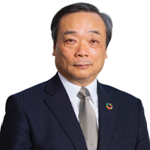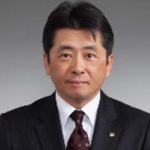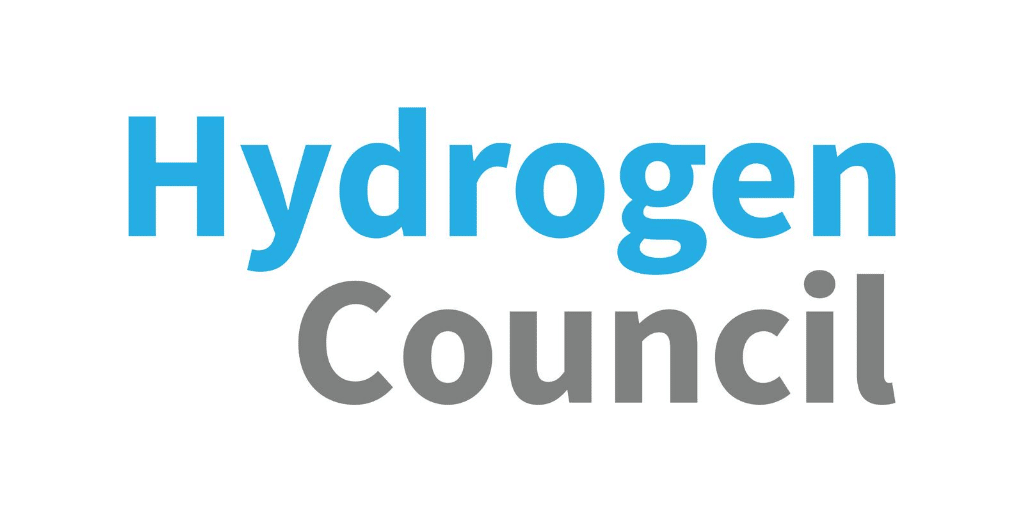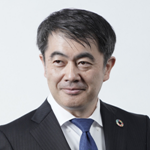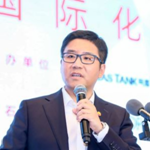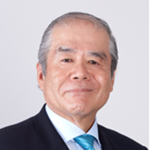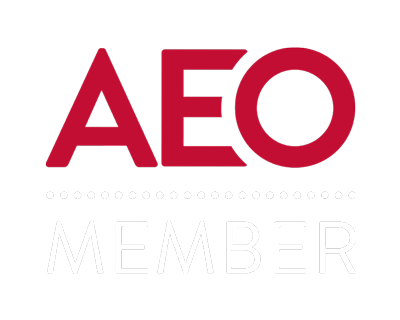Accelerating Japan’s energy transition through innovation and global connections
Strategic Conference Programme
Strategic Conference Programme
- 03 June 2024 Summit Conference Day One
- 04 June 2024 Summit Conference Day Two
- 05 June 2024 Summit Conference Day Three
08:00 AM 09:00 AM
Registration & Welcome Breakfast
Monday 03 June 2024
08:00 AM - 09:00 AM
09:05 AM 09:15 AM
Keynote Address: What Role Will the Asia Zero Emissions Community (AZEC) Play in Decarbonising the Region?
09:15 AM 09:30 AM
Official Opening Address
09:30 AM 09:45 AM
Official Opening Address
09:45 AM 10:45 AM
Leaders’ Panel – Strengthening Global Ties to Achieve Energy Security
Geopolitics, the global economy, and energy markets remain unsettled and concerns over the possibility of additional disruption remain high. Fossil fuel prices are down from 2022 peaks, but markets are volatile, prompting new international collaborations, trade routes and market dynamics to facilitate energy security. The need for collaboration is a priority to safeguard cooperation across both energy and climate agendas, including international trade standards, innovation incentivisation and technology transfer.
- Future Projects: Developing resilient frameworks for collaboration in the development of new energy projects
- Future Collaboration: Security policies based on cooperation to pre-empt and eventually tackle energy crises
- Future Investment: What impact will new clean energy cooperation agreements, including the Lighthouse Initiative, have on the development of Hydrogen, Ammonia, e-fuels, carbon capture and supply chain resilience?
Attendee Insights: Unique opportunity to hear from a panel of global energy leaders as they examine the key strategic trends impacting the energy industry, providing valuable insights on future investment priorities, growth projections, and technological obstacles that need overcoming.
SPEAKERS
Monday 03 June 2024
09:45 AM - 10:45 AM
Leaders’ Panel – Strengthening Global Ties to Achieve Energy Security
Geopolitics, the global economy, and energy markets remain unsettled and concerns over the possibility of additional disruption remain high. Fossil fuel prices are down from 2022 peaks, but markets are volatile, prompting new international collaborations, trade routes and market dynamics to facilitate energy security. The need for collaboration is a priority to safeguard cooperation across both energy and climate agendas, including international trade standards, innovation incentivisation and technology transfer.
- Future Projects: Developing resilient frameworks for collaboration in the development of new energy projects
- Future Collaboration: Security policies based on cooperation to pre-empt and eventually tackle energy crises
- Future Investment: What impact will new clean energy cooperation agreements, including the Lighthouse Initiative, have on the development of Hydrogen, Ammonia, e-fuels, carbon capture and supply chain resilience?
Attendee Insights: Unique opportunity to hear from a panel of global energy leaders as they examine the key strategic trends impacting the energy industry, providing valuable insights on future investment priorities, growth projections, and technological obstacles that need overcoming.
SPEAKERS
11:15 AM 11:30 AM
Keynote Address
11:30 AM 12:30 PM
LNG Outlook – The Evolving Role of LNG and Gas in the Fuel Mix
Japan was the world’s fifth-largest energy consumer in 2022 – importing almost 90% of its energy needs – and the world’s second largest LNG importer. Natural gas, specifically imported LNG, continues to have a pivotal role the energy transition and further reducing its carbon impact is a key part of Japan’s Strategic Energy Plan, as is increasing carbon-neutral LNG cargoes. The plan also includes a commitment to supporting other Asian countries in introducing or accelerating LNG-powered power generation and renewable energy use with financial support and trade.
- Outlook to 2050: Does Japan’s energy mix appropriately position LNG to achieve a smooth energy transition? How can LNG contribute to net zero goals towards 2050? How can Japan continue to secure investment in upstream operations to maintain energy security?
- Expanding Role of LNG: How is Japan’s role expanding as a regional LNG trading hub and what is the progress of Japan’s Asian LNG expansion policy? How will the LNG reserve system operate, and what impact will it have on the global market?
- Demand Growth: Are the economic growth predictions proving accurate? How is this impacting demand growth for LNG (especially in connection with nuclear and renewables in the power mix), alongside the Sixth Strategic Energy Plan?
Attendee Insights: Gain an understanding of how Japan’s energy mix is evolving to meet net zero commitments, including the current and future role for LNG, and Japan’s future role as a regional trading hub.
SPEAKERS
Yumiko Yao
Executive Officer, Senior General Manager of LNG Business Dept. Energy Trading Company, (Joint Role) President of TOKYO LNG TANKER CO., LTD.
Tokyo Gas Co., Ltd.

Monday 03 June 2024
11:30 AM - 12:30 PM
LNG Outlook – The Evolving Role of LNG and Gas in the Fuel Mix
Japan was the world’s fifth-largest energy consumer in 2022 – importing almost 90% of its energy needs – and the world’s second largest LNG importer. Natural gas, specifically imported LNG, continues to have a pivotal role the energy transition and further reducing its carbon impact is a key part of Japan’s Strategic Energy Plan, as is increasing carbon-neutral LNG cargoes. The plan also includes a commitment to supporting other Asian countries in introducing or accelerating LNG-powered power generation and renewable energy use with financial support and trade.
- Outlook to 2050: Does Japan’s energy mix appropriately position LNG to achieve a smooth energy transition? How can LNG contribute to net zero goals towards 2050? How can Japan continue to secure investment in upstream operations to maintain energy security?
- Expanding Role of LNG: How is Japan’s role expanding as a regional LNG trading hub and what is the progress of Japan’s Asian LNG expansion policy? How will the LNG reserve system operate, and what impact will it have on the global market?
- Demand Growth: Are the economic growth predictions proving accurate? How is this impacting demand growth for LNG (especially in connection with nuclear and renewables in the power mix), alongside the Sixth Strategic Energy Plan?
Attendee Insights: Gain an understanding of how Japan’s energy mix is evolving to meet net zero commitments, including the current and future role for LNG, and Japan’s future role as a regional trading hub.
SPEAKERS
Yumiko Yao
Executive Officer, Senior General Manager of LNG Business Dept. Energy Trading Company, (Joint Role) President of TOKYO LNG TANKER CO., LTD., Tokyo Gas Co., Ltd.

12:30 PM 02:00 PM
Lunch Networking Break & VIP Exhibition Tour
Monday 03 June 2024
12:30 PM - 02:00 PM
Lunch Networking Break & VIP Exhibition Tour
02:00 PM 02:15 PM
Geopolitical Outlook 2024
While some pressures from the global energy crisis have eased, energy markets, geopolitics and the global economy remain unsettled, and the risk of further disruption persists. Fossil fuel prices are down from their 2022 peaks, but markets are volatile. Continued fighting in Ukraine is now accompanied by the risk of protracted conflict in the Middle East. Japan continues to make progress toward its vision of an efficient, resilient, and sustainable energy system as well as carbon-neutrality by 2050 – but these ambitions risk disruption as continued geopolitical conflict retains an element of energy weaponisation.
- COP28: What impact will the ‘The UAE Consensus’, agreed at COP28, have on decarbonisation pathways in Japan and globally?
- Supply Chains: To what extent are new energy trading maps and supply chains threatened by geopolitical tensions?
- Energy Security: How will the combination of higher cost of capital and persistent inflation impact new infrastructure and security of supply goals?
Attendee Insights: Understand how geopolitical trends are shaping the energy landscape, and what impact new and emerging threats are likely to have on energy security, sustainability, and economic growth.
Monday 03 June 2024
02:00 PM - 02:15 PM
Geopolitical Outlook 2024
While some pressures from the global energy crisis have eased, energy markets, geopolitics and the global economy remain unsettled, and the risk of further disruption persists. Fossil fuel prices are down from their 2022 peaks, but markets are volatile. Continued fighting in Ukraine is now accompanied by the risk of protracted conflict in the Middle East. Japan continues to make progress toward its vision of an efficient, resilient, and sustainable energy system as well as carbon-neutrality by 2050 – but these ambitions risk disruption as continued geopolitical conflict retains an element of energy weaponisation.
- COP28: What impact will the ‘The UAE Consensus’, agreed at COP28, have on decarbonisation pathways in Japan and globally?
- Supply Chains: To what extent are new energy trading maps and supply chains threatened by geopolitical tensions?
- Energy Security: How will the combination of higher cost of capital and persistent inflation impact new infrastructure and security of supply goals?
Attendee Insights: Understand how geopolitical trends are shaping the energy landscape, and what impact new and emerging threats are likely to have on energy security, sustainability, and economic growth.
02:15 PM 02:30 PM
Keynote Address: How Is the Revised Hydrogen Basic Strategy Enabling Japan to Become a Hydrogen Society?
02:30 PM 03:30 PM
Hydrogen Outlook – Unlocking Hydrogen’s Potential
Japan’s Hydrogen Basic Strategy aims to increase hydrogen and ammonia supply in Japan, by supporting Japan-manufactured equipment and technology, and decrease costs, by incentivising public and private investments into its hydrogen and ammonia supply chain. In addition, it introduces strategies on how to identify specific areas where Japanese companies have innovative technology advantages over their global competitors across hydrogen supply (including production and supply chain); decarbonised power generation; hydrogen use and more. These ambitions highlight a variety of questions and challenges that must be addressed to advance decarbonisation goals and to play a key role in the emerging new low-carbon hydrogen economy. They also highlight the role collaboration and strategic partnerships will play in developing and scaling new technologies.
- Hydrogen Basic Strategy: How does the new strategy incentivise investment in hydrogen, ammonia, and e-methane while minimising risks associated with a new market?
- Legislation & Incentives: How successful has the US Inflation Reduction Act been, and what lessons can be learnt? How do the Supply Chain Subsidy and Clusters Support initiatives strengthen Japan’s market position?
- Technology & Finance: How can Japan better collaborate with regional and global partners to develop new technologies? How should it leverage its technical and financial strengths to secure leadership in hydrogen?
Attendee Insights: Gain insights into the revised Hydrogen Basic Strategy and how it will enable Japan to develop new technology, scale production, and reduce costs, to create a hydrogen economy.
SPEAKERS
Monday 03 June 2024
02:30 PM - 03:30 PM
Hydrogen Outlook – Unlocking Hydrogen’s Potential
Japan’s Hydrogen Basic Strategy aims to increase hydrogen and ammonia supply in Japan, by supporting Japan-manufactured equipment and technology, and decrease costs, by incentivising public and private investments into its hydrogen and ammonia supply chain. In addition, it introduces strategies on how to identify specific areas where Japanese companies have innovative technology advantages over their global competitors across hydrogen supply (including production and supply chain); decarbonised power generation; hydrogen use and more. These ambitions highlight a variety of questions and challenges that must be addressed to advance decarbonisation goals and to play a key role in the emerging new low-carbon hydrogen economy. They also highlight the role collaboration and strategic partnerships will play in developing and scaling new technologies.
- Hydrogen Basic Strategy: How does the new strategy incentivise investment in hydrogen, ammonia, and e-methane while minimising risks associated with a new market?
- Legislation & Incentives: How successful has the US Inflation Reduction Act been, and what lessons can be learnt? How do the Supply Chain Subsidy and Clusters Support initiatives strengthen Japan’s market position?
- Technology & Finance: How can Japan better collaborate with regional and global partners to develop new technologies? How should it leverage its technical and financial strengths to secure leadership in hydrogen?
Attendee Insights: Gain insights into the revised Hydrogen Basic Strategy and how it will enable Japan to develop new technology, scale production, and reduce costs, to create a hydrogen economy.
SPEAKERS
04:00 PM 04:45 PM
Infrastructure – Transforming Japan’s Infrastructure to Power Future Growth
Japan aims to cut total carbon emissions by 46% by 2030 from 2013 levels and has pledged to become carbon neutral by 2050. To hit those targets, it must urgently address economy-wide measures to decrease fossil fuels consumption in power production and industry, electrify a majority of energy end users, and ramp up the generation of emissions-free electricity. Factors unique to Japan create challenges to the scope of clean energy supply solutions available, including a strained national power system, a high reliance on fossil fuel imports and limited spare land suitable for large renewable installations, among other challenges.
- Supply: How is new infrastructure accelerating the supply of LNG to Japan?
- Decarbonisation: What investments will be needed to decarbonise existing and new energy infrastructure?
- Upstream: How can Japan secure investment in new E&P and upstream?
Attendee Insights: Assess critical infrastructure components across Japan and the region, understanding what changes will need to be made to hit ambitious carbon reduction targets, and what impact these will have on future growth objectives.
Monday 03 June 2024
04:00 PM - 04:45 PM
Infrastructure – Transforming Japan’s Infrastructure to Power Future Growth
Japan aims to cut total carbon emissions by 46% by 2030 from 2013 levels and has pledged to become carbon neutral by 2050. To hit those targets, it must urgently address economy-wide measures to decrease fossil fuels consumption in power production and industry, electrify a majority of energy end users, and ramp up the generation of emissions-free electricity. Factors unique to Japan create challenges to the scope of clean energy supply solutions available, including a strained national power system, a high reliance on fossil fuel imports and limited spare land suitable for large renewable installations, among other challenges.
- Supply: How is new infrastructure accelerating the supply of LNG to Japan?
- Decarbonisation: What investments will be needed to decarbonise existing and new energy infrastructure?
- Upstream: How can Japan secure investment in new E&P and upstream?
Attendee Insights: Assess critical infrastructure components across Japan and the region, understanding what changes will need to be made to hit ambitious carbon reduction targets, and what impact these will have on future growth objectives.
04:45 PM 05:30 PM
Trading – Harnessing Market Volatility to Shape Energy Trading
The invasion of Ukraine in 2022 upended global LNG markets as EU buyers scrambled to replace lost Russian LNG supplies, driving global LNG spot prices to record levels and diminishing available supply. Proposed LNG import projects across Asia now face increased delay and cancellation risks, while governments in key LNG growth markets have announced new policies designed to limit dependence on global gas imports in order to achieve energy security, economic growth and decarbonisation goals. Market balances remain uncertain in the immediate-term but projects that have started construction or taken final investment decision are set to add liquefaction capacity by 2030, which should ease prices and gas supply concerns.
- Trading: What is the current LNG trading climate and its impact on the global market?
- Carbon Markets: What are the latest updates on carbon pricing and voluntary carbon markets?
- Carbon-Neutral Cargoes: How can the contracting of carbon neutral LNG be standardised to provide greater transparency and efficiency?
Attendee Insights: Find out how market volatility is reshaping the trading landscape, and to what extend disruption will continue and evolve through 2024/25.
Monday 03 June 2024
04:45 PM - 05:30 PM
Trading – Harnessing Market Volatility to Shape Energy Trading
The invasion of Ukraine in 2022 upended global LNG markets as EU buyers scrambled to replace lost Russian LNG supplies, driving global LNG spot prices to record levels and diminishing available supply. Proposed LNG import projects across Asia now face increased delay and cancellation risks, while governments in key LNG growth markets have announced new policies designed to limit dependence on global gas imports in order to achieve energy security, economic growth and decarbonisation goals. Market balances remain uncertain in the immediate-term but projects that have started construction or taken final investment decision are set to add liquefaction capacity by 2030, which should ease prices and gas supply concerns.
- Trading: What is the current LNG trading climate and its impact on the global market?
- Carbon Markets: What are the latest updates on carbon pricing and voluntary carbon markets?
- Carbon-Neutral Cargoes: How can the contracting of carbon neutral LNG be standardised to provide greater transparency and efficiency?
Attendee Insights: Find out how market volatility is reshaping the trading landscape, and to what extend disruption will continue and evolve through 2024/25.
05:30 PM 08:00 PM
Chair’s Closing Remarks & Welcome Drinks Reception
Monday 03 June 2024
05:30 PM - 08:00 PM
Chair’s Closing Remarks & Welcome Drinks Reception
08:00 PM 08:00 PM
Close of Summit Day One
Monday 03 June 2024
08:00 PM - 08:00 PM
Close of Summit Day One
08:15 AM 09:00 AM
Welcome Coffee
Tuesday 04 June 2024
08:15 AM - 09:00 AM
Welcome Coffee
09:30 AM 10:15 AM
Innovation in Ammonia – Tackling Hard-to-Abate Sectors with Ammonia
The use of hydrogen as a low carbon for hard-to-abate industries is an attractive concept for policy makers and industry alike. However, the practical storage and transportation of hydrogen poses significant challenges, which ammonia may be able to help solve. Ammonia is already used extensively in agriculture and can be liquefied at relatively low pressures and high temperatures, among other benefits. As demand for hydrogen within the energy system grows, storage in the form of ammonia could mitigate many of the practical challenges to hydrogen utilisation as a renewable fuel. However, this requires a carbon-neutral method for synthesising and cracking ammonia, which will require innovative solutions to bring down costs and energy intensity.
- Storage: Expanding electrolyser capacity and transport and storage infrastructure
- Innovation: Assessing new power generation technologies in gas turbines and coal boilers to reduce carbon emissions
- Deployment: Tackling supply chain bottlenecks to accelerate the deployment of ammonia at scale
Attendee Insights: Learn how innovations in ammonia are transforming the energy landscape, enabling hydrogen to be shipped more easily, and emissions to be reduced through co-firing, and in hard to abate sectors.
Tuesday 04 June 2024
09:30 AM - 10:15 AM
Innovation in Ammonia – Tackling Hard-to-Abate Sectors with Ammonia
The use of hydrogen as a low carbon for hard-to-abate industries is an attractive concept for policy makers and industry alike. However, the practical storage and transportation of hydrogen poses significant challenges, which ammonia may be able to help solve. Ammonia is already used extensively in agriculture and can be liquefied at relatively low pressures and high temperatures, among other benefits. As demand for hydrogen within the energy system grows, storage in the form of ammonia could mitigate many of the practical challenges to hydrogen utilisation as a renewable fuel. However, this requires a carbon-neutral method for synthesising and cracking ammonia, which will require innovative solutions to bring down costs and energy intensity.
- Storage: Expanding electrolyser capacity and transport and storage infrastructure
- Innovation: Assessing new power generation technologies in gas turbines and coal boilers to reduce carbon emissions
- Deployment: Tackling supply chain bottlenecks to accelerate the deployment of ammonia at scale
Attendee Insights: Learn how innovations in ammonia are transforming the energy landscape, enabling hydrogen to be shipped more easily, and emissions to be reduced through co-firing, and in hard to abate sectors.
10:15 AM 11:00 AM
Innovation in Hydrogen – Leveraging Hydrogen Technologies to Create a Low-Carbon Economy
The number of announced projects for low-emission hydrogen production is rapidly expanding with annual production of low-emission hydrogen potentially reaching 38 Mt in 2030, according to the IEA, if all announced projects are realised. However, challenges remain to scaling up hydrogen production. Equipment and financial costs are increasing, putting projects at risk and stifling government support for deployment. Inflation is increasing capital and financial costs, threatening project investment. Governments have started to make funding available to support the first large-scale projects, but slow implementation is delaying investment decisions. To address these and other challenges, measures will need to be identified to stimulate low-emission hydrogen production and use to meet climate ambitions.
- Value Chain: What are the right technologies to deploy throughout the value chain to reduce emissions and maximise effectiveness?
- Mobility: How are new hydrogen-powered engines transforming mobility?
- Industrial: What are the latest commercial and industrial innovations in fuel cells?
Attendee Insights: Gain an understanding of the key hydrogen-fuelled technologies shaping the future of the hydrogen economy in Japan and globally, their role in reducing emissions, and applications across mobility, industrial, and power generation.
SPEAKERS
Tuesday 04 June 2024
10:15 AM - 11:00 AM
Innovation in Hydrogen – Leveraging Hydrogen Technologies to Create a Low-Carbon Economy
The number of announced projects for low-emission hydrogen production is rapidly expanding with annual production of low-emission hydrogen potentially reaching 38 Mt in 2030, according to the IEA, if all announced projects are realised. However, challenges remain to scaling up hydrogen production. Equipment and financial costs are increasing, putting projects at risk and stifling government support for deployment. Inflation is increasing capital and financial costs, threatening project investment. Governments have started to make funding available to support the first large-scale projects, but slow implementation is delaying investment decisions. To address these and other challenges, measures will need to be identified to stimulate low-emission hydrogen production and use to meet climate ambitions.
- Value Chain: What are the right technologies to deploy throughout the value chain to reduce emissions and maximise effectiveness?
- Mobility: How are new hydrogen-powered engines transforming mobility?
- Industrial: What are the latest commercial and industrial innovations in fuel cells?
Attendee Insights: Gain an understanding of the key hydrogen-fuelled technologies shaping the future of the hydrogen economy in Japan and globally, their role in reducing emissions, and applications across mobility, industrial, and power generation.
SPEAKERS
11:30 AM 12:15 PM
Financing – Mobilising Investment to Deliver the Net-Zero Economy (NZE)
BCG estimated that an investment of USD $37 trillion is needed by 2030 to finance the energy transition. Per the International Energy Agency (IEA), technologies that are currently under development will be responsible for over 40% of global greenhouse gas (GHG) emission reductions in 2050. Additionally, industrial decarbonisation will require new, innovative technologies such as carbon capture and storage (CCS), green hydrogen, ammonia, and others. These technologies are in the early stages of development and will require substantial investment to support commercial-scale deployment. New collaborations will be needed to accelerate investment – which can be capital-intensive and high risk – to achieve net zero targets.
- New LNG Projects: What steps can Japan take to incentivise and de-risk investment in new upstream projects?
- New Green Projects: How will the Asia GX Consortium encourage and facilitate GX investments in Asia?
- AZEC Public-Private Investment Forum: What role will this forum play in shaping a new investment strategy?
Attendee Insights: Explore how best to secure investment and financing to successfully deliver new projects, including essential updates on new subsidy programmes designed to kickstart new production and innovation.
SPEAKERS
Kohei Toyoda
Director General for Energy Transformation Strategy, Energy and Natural Resources Finance Group
Japan Bank for International Cooperation (JBIC)

Tuesday 04 June 2024
11:30 AM - 12:15 PM
Financing – Mobilising Investment to Deliver the Net-Zero Economy (NZE)
BCG estimated that an investment of USD $37 trillion is needed by 2030 to finance the energy transition. Per the International Energy Agency (IEA), technologies that are currently under development will be responsible for over 40% of global greenhouse gas (GHG) emission reductions in 2050. Additionally, industrial decarbonisation will require new, innovative technologies such as carbon capture and storage (CCS), green hydrogen, ammonia, and others. These technologies are in the early stages of development and will require substantial investment to support commercial-scale deployment. New collaborations will be needed to accelerate investment – which can be capital-intensive and high risk – to achieve net zero targets.
- New LNG Projects: What steps can Japan take to incentivise and de-risk investment in new upstream projects?
- New Green Projects: How will the Asia GX Consortium encourage and facilitate GX investments in Asia?
- AZEC Public-Private Investment Forum: What role will this forum play in shaping a new investment strategy?
Attendee Insights: Explore how best to secure investment and financing to successfully deliver new projects, including essential updates on new subsidy programmes designed to kickstart new production and innovation.
SPEAKERS
Kohei Toyoda
Director General for Energy Transformation Strategy, Energy and Natural Resources Finance Group, Japan Bank for International Cooperation (JBIC)

12:15 PM 01:00 PM
Shipping – Establishing a Roadmap to Zero Emission Shipping
In 2023 international shipping accounted for about 3% of global energy-related CO2 emissions. While the revised emissions reduction targets recently announced by the International Maritime Organization (IMO) are now in line with the goals set out in the Paris Agreement, legally binding measures are needed to steer the maritime shipping sector onto a trajectory consistent with the Net Zero Emissions by 2050 (NZE) Scenario. In addition, technology innovation, supportive policies and collaboration across the value chain must come together to drive the adoption of low- and zero-emission fuels and technologies for oceangoing vessels. Japan – along with China and Korea – continues to lead in designing and building ammonia-ready vessels, as well as on bunkering protocols and infrastructure.
- Decarbonisation: What barriers are holding back progress and how can the industry overcome them? What new innovations are being applied to vessels to reduce emissions?
- Fleet Growth: Will the number of new vessels entering the fleet by 2027 be sufficient to handle projected demand growth?
- Regulatory Update: IMO’s newly revised GHG strategy: Does it go far enough and what it means for shipping and the Paris Agreement?
Attendee Insights: Find out how new regulation, fuel, and technology are shaping the future of shipping in Asia and globally, and what impact these changes will have on supply chains and profitability.
Tuesday 04 June 2024
12:15 PM - 01:00 PM
Shipping – Establishing a Roadmap to Zero Emission Shipping
In 2023 international shipping accounted for about 3% of global energy-related CO2 emissions. While the revised emissions reduction targets recently announced by the International Maritime Organization (IMO) are now in line with the goals set out in the Paris Agreement, legally binding measures are needed to steer the maritime shipping sector onto a trajectory consistent with the Net Zero Emissions by 2050 (NZE) Scenario. In addition, technology innovation, supportive policies and collaboration across the value chain must come together to drive the adoption of low- and zero-emission fuels and technologies for oceangoing vessels. Japan – along with China and Korea – continues to lead in designing and building ammonia-ready vessels, as well as on bunkering protocols and infrastructure.
- Decarbonisation: What barriers are holding back progress and how can the industry overcome them? What new innovations are being applied to vessels to reduce emissions?
- Fleet Growth: Will the number of new vessels entering the fleet by 2027 be sufficient to handle projected demand growth?
- Regulatory Update: IMO’s newly revised GHG strategy: Does it go far enough and what it means for shipping and the Paris Agreement?
Attendee Insights: Find out how new regulation, fuel, and technology are shaping the future of shipping in Asia and globally, and what impact these changes will have on supply chains and profitability.
01:00 PM 02:00 PM
Lunch Networking Break
Tuesday 04 June 2024
01:00 PM - 02:00 PM
Lunch Networking Break
02:00 PM 02:45 PM
Decarbonisation – Transitioning to a Decarbonised Energy System
The imperative to reduce the negative impact of global climate change continues to be a global priority. Amidst the drive to deliver on pledges to be carbon neutral by 2050, fossil fuel supply and demand are expected to decline. That said, natural gas is expected to remain resilient in the coming years, especially LNG. To maintain this advantage, a focus must be placed on reducing the carbon footprint of assets and customers, managing risk by integrating emissions costs into business models, and unlocking new commercial opportunities through new applications and revenue streams.
- Carbon Management: What is the role for carbon management in the energy transition? Who should be responsible for deploying these technologies?
- Methane Reduction: What low and zero emission technologies should be deployed across the value chain to reduce the carbon footprint? What impact will a common emissions policy have on abatement measures?
- Frameworks: Will the adoption of greenhouse gas emissions frameworks give a more accurate picture of the impact of an individual cargo?
Attendee Insights: Reviewing current emission reduction strategies in key Asian markets, what impact cross-border collaboration and regulation will have on future efforts, and how technology can make carbon neutral LNG viable.
SPEAKERS
Tuesday 04 June 2024
02:00 PM - 02:45 PM
Decarbonisation – Transitioning to a Decarbonised Energy System
The imperative to reduce the negative impact of global climate change continues to be a global priority. Amidst the drive to deliver on pledges to be carbon neutral by 2050, fossil fuel supply and demand are expected to decline. That said, natural gas is expected to remain resilient in the coming years, especially LNG. To maintain this advantage, a focus must be placed on reducing the carbon footprint of assets and customers, managing risk by integrating emissions costs into business models, and unlocking new commercial opportunities through new applications and revenue streams.
- Carbon Management: What is the role for carbon management in the energy transition? Who should be responsible for deploying these technologies?
- Methane Reduction: What low and zero emission technologies should be deployed across the value chain to reduce the carbon footprint? What impact will a common emissions policy have on abatement measures?
- Frameworks: Will the adoption of greenhouse gas emissions frameworks give a more accurate picture of the impact of an individual cargo?
Attendee Insights: Reviewing current emission reduction strategies in key Asian markets, what impact cross-border collaboration and regulation will have on future efforts, and how technology can make carbon neutral LNG viable.
SPEAKERS
02:45 PM 03:30 PM
Innovation in E-Methane – Collaborating to Unlock the Full Potential of Carbon Neutral E-Methane
Demand for renewable gas is expected to increase rapidly in the coming years as both regulation and the market are incentivising lower emission fuel in power, transportation, maritime and logistics. In just a couple of years, synthetic renewable e-methane will begin to complement biogas as a source of extremely low emissions energy where direct electrification is not a feasible option, and avoids the cost associated with new infrastructure and new industrial processes, which for many sectors are not yet technically feasible, affordable, or available.
- Transportation: Examining e-methane’s role in the pathway to decarbonising maritime and heavy transportation
- Commercialisation: Exploring how technological innovations and supply chain efficiencies can reduce the cost of production
- Supply Chain: Collaborating with international partners to establish an international supply chain for e-methane
Attendee Insights: Understanding the critical role e-methane will play in decarbonisation strategies as a cost-effective, and scalable, pathway to net zero.
Tuesday 04 June 2024
02:45 PM - 03:30 PM
Innovation in E-Methane – Collaborating to Unlock the Full Potential of Carbon Neutral E-Methane
Demand for renewable gas is expected to increase rapidly in the coming years as both regulation and the market are incentivising lower emission fuel in power, transportation, maritime and logistics. In just a couple of years, synthetic renewable e-methane will begin to complement biogas as a source of extremely low emissions energy where direct electrification is not a feasible option, and avoids the cost associated with new infrastructure and new industrial processes, which for many sectors are not yet technically feasible, affordable, or available.
- Transportation: Examining e-methane’s role in the pathway to decarbonising maritime and heavy transportation
- Commercialisation: Exploring how technological innovations and supply chain efficiencies can reduce the cost of production
- Supply Chain: Collaborating with international partners to establish an international supply chain for e-methane
Attendee Insights: Understanding the critical role e-methane will play in decarbonisation strategies as a cost-effective, and scalable, pathway to net zero.
04:00 PM 04:45 PM
CCS – Making Net-Zero Possible with Cost-Effective CCS
The capture capacity of CCS projects in development, in construction or operating continues to grow, with total capture capacity of the CCS project pipeline growing at a compound rate of more than 35% per annum since 2017, according to the Global CCS Institute. The number of CCS facilities in the development pipeline is also at an all-time high and policy support continues to increase. Asia Pacific has seen significant activity from both government and industry across the region since 2022, including new policy measures by early adopting nations Japan and Australia. Challenges to scale-up, however, include financing innovative enabling technology, scaling CCS cost-effectively for power generation and more.
- Collaboration: How should policymakers, financial institutions, and industry collaboration to help develop and deploy CCUS across Asia?
- Blue Hydrogen: What are the most effective production pathways and potential regulatory challenges?
- Industrial Hub Support Scheme: How effective will new financial support be at decarbonising hard to abate industries?
Attendee Insights: Gain insights into how collaboration, incentives, and technology are reducing the cost of CCS, enabling significant emission reductions in hard to abate sectors, and new opportunities to emerge in the circular economy.
Tuesday 04 June 2024
04:00 PM - 04:45 PM
CCS – Making Net-Zero Possible with Cost-Effective CCS
The capture capacity of CCS projects in development, in construction or operating continues to grow, with total capture capacity of the CCS project pipeline growing at a compound rate of more than 35% per annum since 2017, according to the Global CCS Institute. The number of CCS facilities in the development pipeline is also at an all-time high and policy support continues to increase. Asia Pacific has seen significant activity from both government and industry across the region since 2022, including new policy measures by early adopting nations Japan and Australia. Challenges to scale-up, however, include financing innovative enabling technology, scaling CCS cost-effectively for power generation and more.
- Collaboration: How should policymakers, financial institutions, and industry collaboration to help develop and deploy CCUS across Asia?
- Blue Hydrogen: What are the most effective production pathways and potential regulatory challenges?
- Industrial Hub Support Scheme: How effective will new financial support be at decarbonising hard to abate industries?
Attendee Insights: Gain insights into how collaboration, incentives, and technology are reducing the cost of CCS, enabling significant emission reductions in hard to abate sectors, and new opportunities to emerge in the circular economy.
04:45 PM 05:30 PM
Regional LNG – Delivering a Credible Energy Transition in Asia with LNG
The rise of LNG as an energy source has been driven by several factors, including increasing demand for energy, the desire to reduce greenhouse gas emissions, and the growth of natural gas production in countries such as the United States and Australia. There are also continuing impacts from pandemic and the Ukraine invasions, resulting in the construction of LNG terminals throughout Europe. According to Shell, Asia is expected to lead growth in LNG demand in the near-term. The industry is growing from inside while expanding its infrastructure and demand is expanding at the same time. However, the future of the LNG industry will depend on a variety of factors, including government policies, climate ambitions and the development of technologies to further decarbonise LNG production, securing its role in the future energy mix.
- LNG Forecast: Will There be Enough Flexibility in the LNG Market to Stimulate Demand in Asia?
- Energy Transition: What is the pace of energy transition in key Asian markets? Is the traditional coal-gas-renewable pathway still valid?
- New Supply: Can FSRU’s satisfy future demand growth in Asia? How can new production be accelerated?
Attendee Insights: Gain insights into the critical role LNG is playing in enabling Asia to fuel economic growth, transition from coal, and reduce emissions throughout the supply chains.
Tuesday 04 June 2024
04:45 PM - 05:30 PM
Regional LNG – Delivering a Credible Energy Transition in Asia with LNG
The rise of LNG as an energy source has been driven by several factors, including increasing demand for energy, the desire to reduce greenhouse gas emissions, and the growth of natural gas production in countries such as the United States and Australia. There are also continuing impacts from pandemic and the Ukraine invasions, resulting in the construction of LNG terminals throughout Europe. According to Shell, Asia is expected to lead growth in LNG demand in the near-term. The industry is growing from inside while expanding its infrastructure and demand is expanding at the same time. However, the future of the LNG industry will depend on a variety of factors, including government policies, climate ambitions and the development of technologies to further decarbonise LNG production, securing its role in the future energy mix.
- LNG Forecast: Will There be Enough Flexibility in the LNG Market to Stimulate Demand in Asia?
- Energy Transition: What is the pace of energy transition in key Asian markets? Is the traditional coal-gas-renewable pathway still valid?
- New Supply: Can FSRU’s satisfy future demand growth in Asia? How can new production be accelerated?
Attendee Insights: Gain insights into the critical role LNG is playing in enabling Asia to fuel economic growth, transition from coal, and reduce emissions throughout the supply chains.
05:30 PM 07:00 PM
Closing Remarks & Women in Energy Networking Drinks Reception
Tuesday 04 June 2024
05:30 PM - 07:00 PM
Closing Remarks & Women in Energy Networking Drinks Reception
07:00 PM 07:00 PM
Close of Summit Day Two
Tuesday 04 June 2024
07:00 PM - 07:00 PM
Close of Summit Day Two
08:30 AM 09:00 AM
Welcome Coffee
Wednesday 05 June 2024
08:30 AM - 09:00 AM
Welcome Coffee
09:15 AM 10:15 AM
Power Markets – Reforming Japan’s Power Market to Drive the Clean Energy Transition
The rapid growth of renewable energy in Japan raises new challenges regarding the intermittency of power generation – the largest source of Japan’s emissions – along with grid connection and stability. Solutions will likely span across energy storage technology and capacity, power grid capabilities, and renewable energy sources. This raised questions around the advantages to be created regulatory frameworks, regional economies of scale through cross-border collaborations and infrastructure, the role of private sector investment and more.
- Super Grid: Is a pan-Asia power grid viable? What new commercial opportunities will it unlock?
- Renewables: To what extent does the grid need to change to fully integrate new renewable energy production?
- Demand: Is the current power grid restricting growth? What network do energy-intensive industries want?
Attendee Insights: Find out what reforms are needed to expand power grid capacity, integrate new production, and enable greater electrification to reduce emissions.
Wednesday 05 June 2024
09:15 AM - 10:15 AM
Power Markets – Reforming Japan’s Power Market to Drive the Clean Energy Transition
The rapid growth of renewable energy in Japan raises new challenges regarding the intermittency of power generation – the largest source of Japan’s emissions – along with grid connection and stability. Solutions will likely span across energy storage technology and capacity, power grid capabilities, and renewable energy sources. This raised questions around the advantages to be created regulatory frameworks, regional economies of scale through cross-border collaborations and infrastructure, the role of private sector investment and more.
- Super Grid: Is a pan-Asia power grid viable? What new commercial opportunities will it unlock?
- Renewables: To what extent does the grid need to change to fully integrate new renewable energy production?
- Demand: Is the current power grid restricting growth? What network do energy-intensive industries want?
Attendee Insights: Find out what reforms are needed to expand power grid capacity, integrate new production, and enable greater electrification to reduce emissions.
10:15 AM 11:00 AM
Industrial Policy – Japan’s GX: Harnessing Innovation for Climate Leadership
The decarbonisation of industry is critical in achieving Japan’s net zero targets by 2050, as industries are responsible for 36% of the country’s GHG emissions and 42% of its energy consumption. From an economic perspective, there is also the challenge of how best to maintain or enhance the competitive edge of Japan’s industries while reducing emissions, given that the industrial sector employs 15% of the nation’s workers and contributes to 22% of gross domestic product (GDP). Decisions will need to be considered and discussed for Japan to remain on track in the energy transition.
- Clean Manufacturing: How can Japanese industry satisfy future demand for clean and green components? What role will zero-carbon industrial hubs play?
- GX League: Update and analysis of latest developments. Will carbon trading enable Japan to accelerate decarbonisation?
- Financing: What can the Japanese government do to convince businesses to spend on GX reforms. How can it attract private sector money?
Attendee Insights: Examine how Japan can utilise regulation, technology, and subsidies, to create the right environment to reduce emissions whilst maintaining the competitive edge of Japan’s industries.
Wednesday 05 June 2024
10:15 AM - 11:00 AM
Industrial Policy – Japan’s GX: Harnessing Innovation for Climate Leadership
The decarbonisation of industry is critical in achieving Japan’s net zero targets by 2050, as industries are responsible for 36% of the country’s GHG emissions and 42% of its energy consumption. From an economic perspective, there is also the challenge of how best to maintain or enhance the competitive edge of Japan’s industries while reducing emissions, given that the industrial sector employs 15% of the nation’s workers and contributes to 22% of gross domestic product (GDP). Decisions will need to be considered and discussed for Japan to remain on track in the energy transition.
- Clean Manufacturing: How can Japanese industry satisfy future demand for clean and green components? What role will zero-carbon industrial hubs play?
- GX League: Update and analysis of latest developments. Will carbon trading enable Japan to accelerate decarbonisation?
- Financing: What can the Japanese government do to convince businesses to spend on GX reforms. How can it attract private sector money?
Attendee Insights: Examine how Japan can utilise regulation, technology, and subsidies, to create the right environment to reduce emissions whilst maintaining the competitive edge of Japan’s industries.
10:45 AM 11:00 AM
Begin at the Beginning: Nexus-Integrated Policies for Clean Hydrogen Production and Integration into High-Priority Heavy Industry Sectors in Japan
Wednesday 05 June 2024
10:45 AM - 11:00 AM
Begin at the Beginning: Nexus-Integrated Policies for Clean Hydrogen Production and Integration into High-Priority Heavy Industry Sectors in Japan
11:00 AM 11:30 AM
Morning Networking Coffee Break
Wednesday 05 June 2024
11:00 AM - 11:30 AM
Morning Networking Coffee Break
11:30 AM 12:15 PM
Renewables – Harnessing the Power of Renewables to Transform Japan’s Future Energy Mix
Achieving carbon neutrality by 2050 will require a joint effort among Japan’s policy makers, regulators, businesses and individuals. To advance at the pace needed to deliver climate goals for 2050, Japan will need to consider deploying decarbonisation levers like increasing renewables in the power mix through activities such as auctions for wind capacity; making strategic choices on percentages of renewables and nuclear power as well as steps needed to enable capacity; scaling long-term technologies; and developing needed infrastructure for solutions like CCUS and hydrogen; and maintaining industry competitiveness through industries and processes with lower energy demands.
- Carbon Pricing: Tax, trading scheme, or direct subsidy; how should Japan finance new technology development?
- Future Renewables: What technology is right for Japan?
- Akita Port: What are the key takeaways and learnings from the project, and how can these be applied across Japan?
Attendee Insights: Understand how Japan can fully realise its renewable energy potential to unlock new commercial opportunities, support future development in new technologies and fuels, and reduce emissions.
SPEAKER
Wednesday 05 June 2024
11:30 AM - 12:15 PM
Renewables – Harnessing the Power of Renewables to Transform Japan’s Future Energy Mix
Achieving carbon neutrality by 2050 will require a joint effort among Japan’s policy makers, regulators, businesses and individuals. To advance at the pace needed to deliver climate goals for 2050, Japan will need to consider deploying decarbonisation levers like increasing renewables in the power mix through activities such as auctions for wind capacity; making strategic choices on percentages of renewables and nuclear power as well as steps needed to enable capacity; scaling long-term technologies; and developing needed infrastructure for solutions like CCUS and hydrogen; and maintaining industry competitiveness through industries and processes with lower energy demands.
- Carbon Pricing: Tax, trading scheme, or direct subsidy; how should Japan finance new technology development?
- Future Renewables: What technology is right for Japan?
- Akita Port: What are the key takeaways and learnings from the project, and how can these be applied across Japan?
Attendee Insights: Understand how Japan can fully realise its renewable energy potential to unlock new commercial opportunities, support future development in new technologies and fuels, and reduce emissions.
SPEAKER
12:15 PM 01:00 PM
Green Hydrogen & Ammonia – Decarbonised by Sea: Unlocking New Supply Chains to Decarbonise Japan
Momentum for clean energy transitions is accelerating, driven by increasingly ambitious energy and climate policies, technological progress, and renewed energy security concerns. The energy transition hinge on clean energy technology supply chains, with an estimated USD $1.2 trillion of cumulative investment needed to bring enough capacity online to be on track with the Net Zero Emissions Scenario’s 2030 targets, according to the IEA. Announced investments cover around 60% of this total. This raises challenges around establishing new supply chains, manufacturing needs, supply expansion and more, including the investment needed to deliver them.
- Supply Chains: Establishing and expanding supply chains internationally for hydrogen and ammonia
- Infrastructure: Expanding carbon-neutral ports to accommodate future needs for imports of carbon-neutral fuels
- Electrolysers: Boosting the development and commercialization of water electrolysers to expand green hydrogen production
Attendee Insights: Find out how new technology and supply chains will enable Japan to expand the use of green hydrogen and ammonia as part of its future energy mix, realising zero carbon energy, and transforming the competitiveness of its industry.
Wednesday 05 June 2024
12:15 PM - 01:00 PM
Green Hydrogen & Ammonia – Decarbonised by Sea: Unlocking New Supply Chains to Decarbonise Japan
Momentum for clean energy transitions is accelerating, driven by increasingly ambitious energy and climate policies, technological progress, and renewed energy security concerns. The energy transition hinge on clean energy technology supply chains, with an estimated USD $1.2 trillion of cumulative investment needed to bring enough capacity online to be on track with the Net Zero Emissions Scenario’s 2030 targets, according to the IEA. Announced investments cover around 60% of this total. This raises challenges around establishing new supply chains, manufacturing needs, supply expansion and more, including the investment needed to deliver them.
- Supply Chains: Establishing and expanding supply chains internationally for hydrogen and ammonia
- Infrastructure: Expanding carbon-neutral ports to accommodate future needs for imports of carbon-neutral fuels
- Electrolysers: Boosting the development and commercialization of water electrolysers to expand green hydrogen production
Attendee Insights: Find out how new technology and supply chains will enable Japan to expand the use of green hydrogen and ammonia as part of its future energy mix, realising zero carbon energy, and transforming the competitiveness of its industry.
01:00 PM 01:00 PM
Chair’s Closing Remarks & Close of Summit
Wednesday 05 June 2024
01:00 PM - 01:00 PM
Chair’s Closing Remarks & Close of Summit
- 03 June 2024 Summit Conference Day One
- 04 June 2024 Summit Conference Day Two
- 05 June 2024 Summit Conference Day Three























